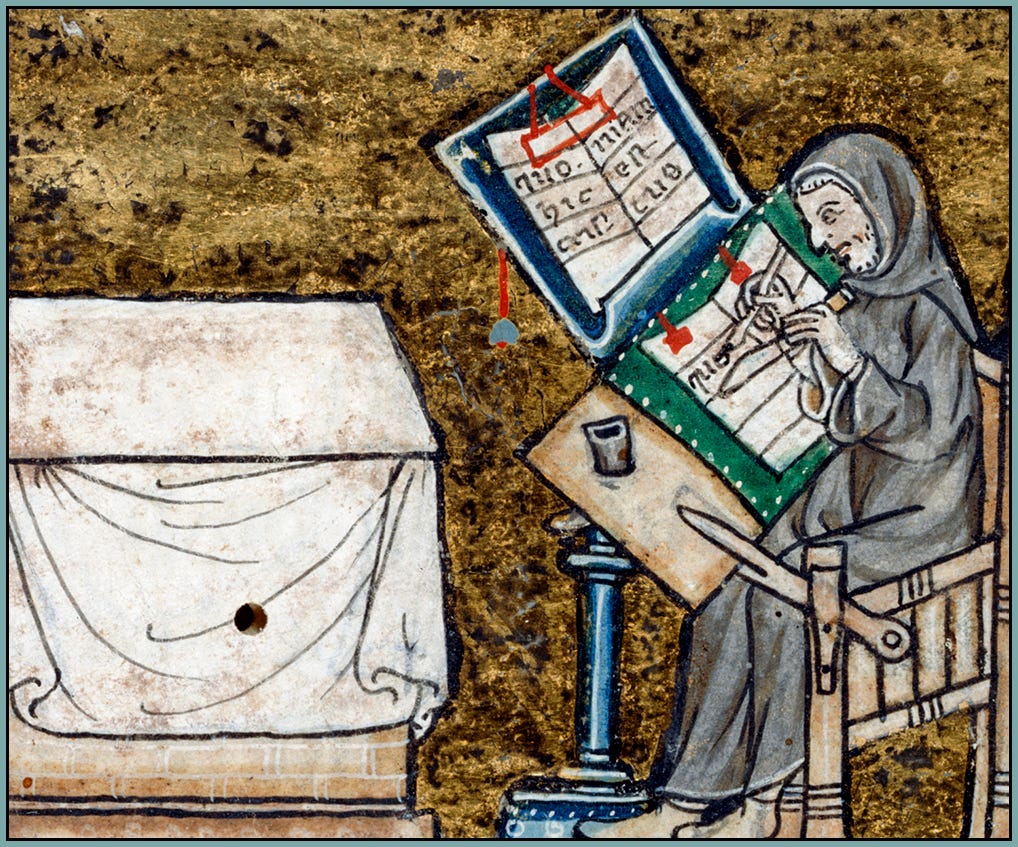A Mystical (and Medieval) Journey through the Mass
Liturgical allegory from a twelfth-century monk
The old Catholic Encyclopedia describes Honorius of Autun as “one of the most mysterious personages in all the medieval period,” I suppose because his biography is unusually obscure for such a prolific author—he appears to have written thirty-eight works, which is impressive even if we consider only the time and effort required to physically write words in the twelfth century. Though researchers have been unable to determine a reasonably accurate “words per minute” figure for medieval scribes, the process must have been painfully (or gloriously?) slow by postmodern standards.
One of Honorius’ more important texts is Gemma Animae (“Jewel of the Soul”), which offers fascinating insight into one medieval monk’s allegorical vision of sacred liturgy, and into medieval spirituality more generally. On Sunday we considered the history of liturgical allegoresis and the value—to some extent, the necessity—of experiencing and appreciating traditional liturgy according to the symbolic modes of thought that flourished in medieval culture. In this post I’ll share and discuss some passages from Gemma Animae,1 which despite being nine hundred years old, remains relevant, enlightening, and useful for those who attend the “Latin Mass”—or what I like to call the Roman-Frankish Eucharistic Liturgy of Western Christendom.
Keep reading with a 7-day free trial
Subscribe to Via Mediaevalis to keep reading this post and get 7 days of free access to the full post archives.





